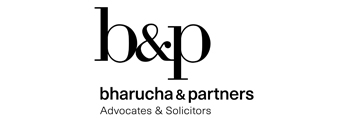In July 2022 the Supreme Court, through its decision in Vidarbha Industries Power Limited v Axis Bank Limited, reversed the settled position on the initiation of the corporate insolvency resolution process (CIRP) for a corporate debtor that had defaulted on a financial debt. In Vidarbha, the court held that, under section 7(5)(a) of the Insolvency & Bankruptcy Code, 2016 (IBC), adjudicating authorities have the discretion whether to admit or refuse to admit insolvency petitions, despite the financial creditor having proved the existence of a debt and a default having occurred on that debt.
Prior to Vidarbha, adjudicating authorities were required to admit corporate debtors to CIRP in cases where they were satisfied that a debt existed and that the corporate debtor had defaulted on this debt, as held in Innoventive Industries Limited v ICICI Bank Limited, Mobilox Innovations Pvt Limited v Kirusa Software Pvt Limited and ES Krishnamurthy v Bharath Hi-Tech Builders (P) Limited. There was no question of an adjudicating authority examining extraneous or mitigating factors that may have excused default by the corporate debtor.

Partner
Bharucha & Partners
The Supreme Court’s complete turnaround in Vidarbha was based on the fact that section 7(5) of the IBC provides that the adjudicating authority may admit the application for CIRP. As the language of the section does not direct admission of the application, the court held that adjudicating authorities are free to rely on other factors relating to the solvency or financial health of corporate debtors. The decision in Vidarbha has made it more difficult for financial creditors to pursue CIRP, as a number of corporate debtors who had defaulted on debts have now successfully opposed the initiation of CIRP on various financial grounds.
Given the material change in position created by Vidarbha, in January 2023 the full bench of the Supreme Court, in Maganlal Daga HUF and Anr v Jag Mohan Daga and Ors, indicated it will consider the issues arising out of Vidarbha, and it is possible the full bench may reinstate the position existing prior to that case. Interestingly, during arguments in Maganlal Daga, the Solicitor General submitted that “the principle enunciated in Vidarbha Industries would be liable to dilute the substratum of the [IBC]”.
The government’s arguments seem to underscore its belief that the Supreme Court’s decision in Vidarbha appears contrary to legislative intent. The notes on clauses to the Insolvency and Bankruptcy Code Bill, 2015, make it clear that the legislature did not envisage that adjudicating authorities would consider any factors other than the existence of a debt and a default.
The government is also attempting to address through legislation the issues caused by Vidarbha. On 18 January 2023, the Ministry of Corporate Affairs (MCA) invited public comments on a number of proposed changes to the IBC, including an amendment to section 7. This will require adjudicating authorities to admit CIRP applications where they are satisfied a default has occurred and the applicant has fulfilled the relevant procedural requirements. The proposed amendment to section 7 of the IBC will bring greater clarity to proceedings under the IBC and restore financial creditors’ faith in the recovery process.
The MCA also proposes amending section 7 of the IBC to provide for the speedier disposal of CIRP applications by confirming the 14-day timeline under section 7(4) of the IBC applies both to ascertaining the existence of a default and to rendering a decision on the CIRP application. While this is a positive step towards ensuring timely resolution, it may not necessarily have the intended effect. The Supreme Court has previously held, in cases such as Surendra Trading Company v Juggilal Kamlapat Jute Mills and Asset Reconstruction Company (India) Limited v Tulip Star Hotels Limited and Ors, that timelines in section 7 are directory and not mandatory. To compound the difficulty, data indicates that, on average, adjudicating authorities take 133 days to dispose of CIRP applications.
It remains to be seen whether the Supreme Court will reverse Vidarbha through Maganlal Daga before the proposed amendments are effected. One way or another, it appears that financial creditors will no longer suffer the uncertainty created by the decision in Vidarbha.
Sudeshna Guha Roy is a partner and Samridhi Lodha is an associate at Bharucha & Partners

13th Floor, Free Press House
Free Press Journal Marg
Nariman Point,
Mumbai 400 021. India
Contact details:
T: +91 22 2289 9300
E: sr.partner@bharucha.in



























